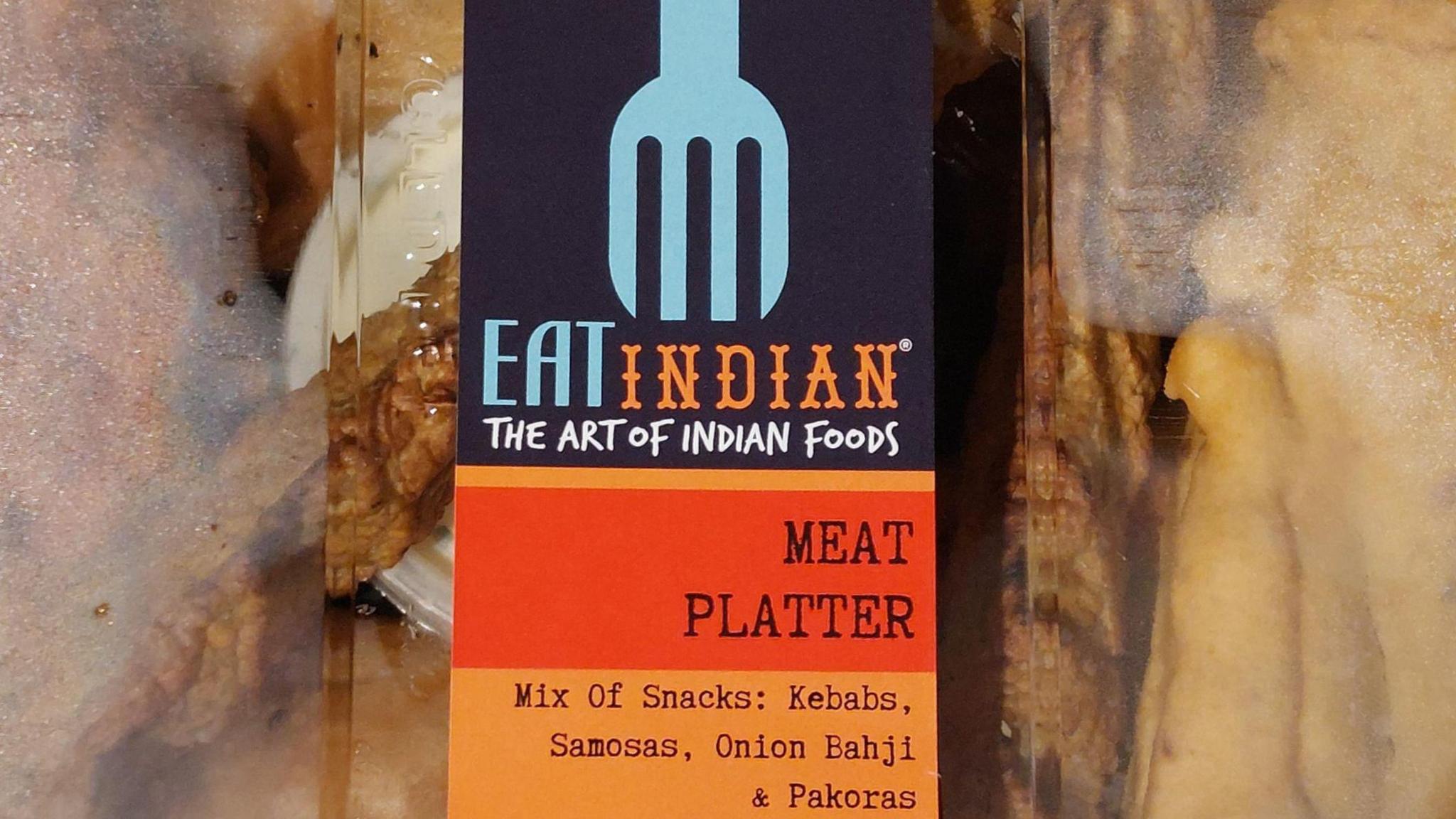Kebabs made of wrong meat land firms in court

Eat Indian's lamb kebabs and chicken kebabs were found to include beef
- Published
Kebabs made of the wrong meat have landed two businesses in court.
Takeaway Naafiah Grill in Burnley was serving unsuspecting customers lamb and chicken kebabs that contained mostly beef.
In a separate case, Lancaster-based Eat Indian supplied a farm shop in Preston with lamb and chicken kebabs that were found to contain beef.
Both firms' bosses blamed suppliers for the errors, but the companies were fined under the Food Safety Act at magistrates courts in Lancashire.
Joshua Roberts, from Lancashire County Council, said the firms had a "blatant disregard for public safety".
'Shocking'
Waleed Raza, 34, and 39-year-old Fazila Wadia, from Naafiah Burnley Ltd, admitted the offences at Blackburn Magistrates' Court and were fined £4,500 and ordered to pay £953 each in costs.
Fuzail Patel, 35, of Eat Indian, admitted the offences at Lancaster Crown Court and was fined more than £4,500.
The offences were brought under section 14 of the Food Safety Act 1990, external which states that selling food that is not what the customer expected in terms of its type, ingredients, or quality is illegal.
Patel had previously been told to meet food labelling requirements but failed to address the issues.
In court, he said he had received the pre-made kebabs from a food producer, then added his own branded labels.
But he failed to make his own checks on the content of the products.
Raza and Wadia had been advised by Trading Standards following a failed sample from their now-dissolved company.
They too blamed their meat supplier for a mix up over the meat they supplied, but were unable to provide any records or checks.
Lancashire County Council environment cabinet member Roberts said: "Inaccurate meat kebab products have become a national issue for Trading Standards, which has conducted extensive sampling in recent years to address the problem.
"Consumers often do not know what meat they are eating and, shockingly, those making these products often don't know either."
Correction 11 August 2025: This article originally reported that Lancaster-based takeaway Eat Indian had supplied a farm shop in Preston with lamb and pork kebabs that also contained chicken. In fact they had supplied lamb and chicken kebabs which were found to contain beef.
Get in touch
Tell us which stories we should cover in Lancashire
Listen to the best of BBC Radio Lancashire on Sounds and follow BBC Lancashire on Facebook, external, X, external and Instagram, external. You can also send story ideas via Whatsapp to 0808 100 2230.